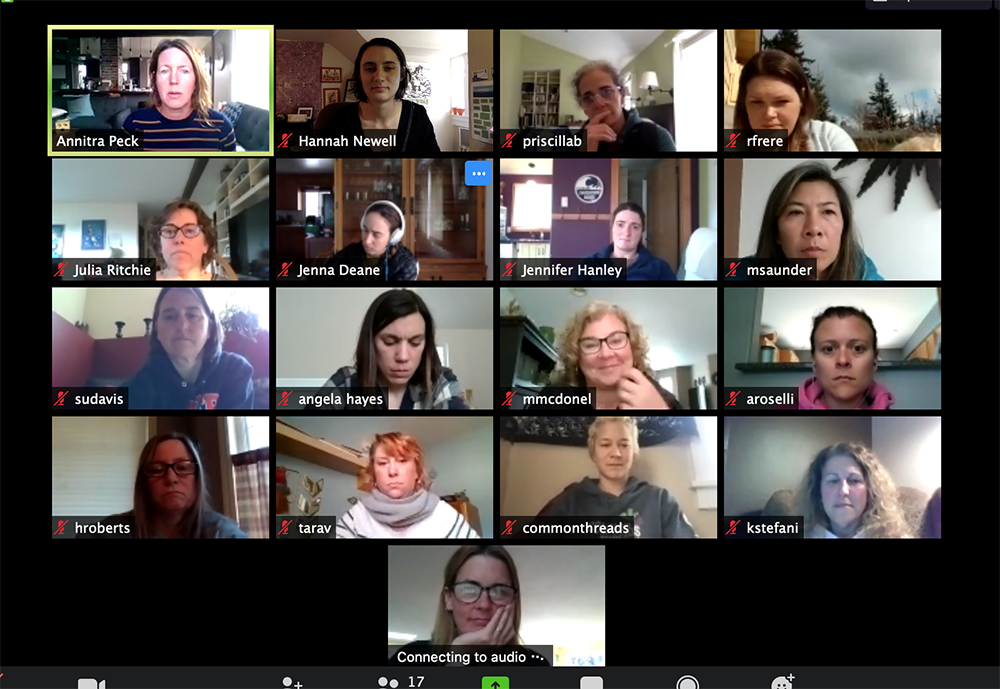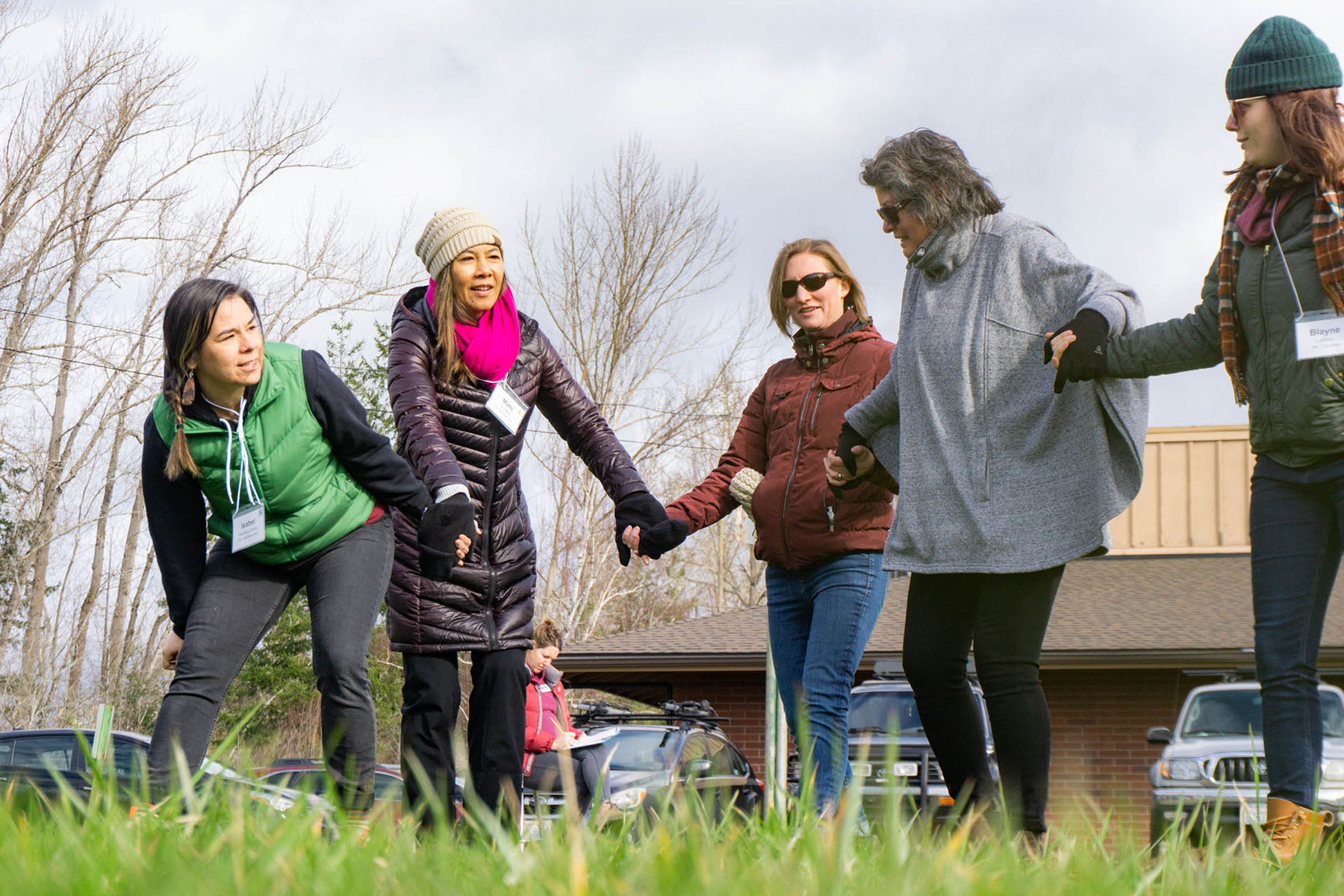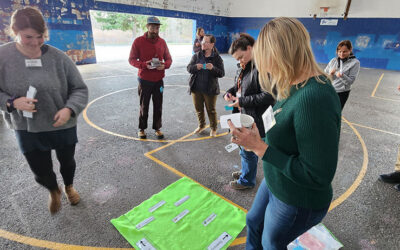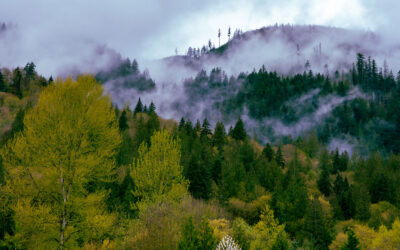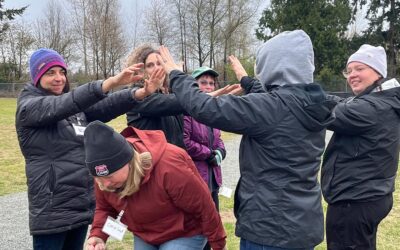Written by Kiana Jenkins, Common Threads Food Educator, Spring 2020
As an AmeriCorp member here at Common Threads, I’ve had the opportunity to take part in ClimeTime, a series of professional development workshops for Whatcom County teachers. The primary focus of the ClimeTime workshops have been to train teachers how to more effectively teach climate science with an emphasis on outdoor and place-based learning. In 2018, Washington State Governor, Jay Inslee, pushed for a $4 million proviso to support climate science in education. The Office of the Superintendent of Public Instruction (OSPI) in partnership with the University of Washington offered climate science grants to community based organizations to host ClimeTime teacher workshops focused on Next Generation Science Standards, climate science, outdoor education strategies and a peek into traditional ecological knowledge.
Four local organizations- Common Threads, Nooksack Salmon Enhancement Association (NSEA), Wild Whatcom, and Re-Sources- collaboratively received a ClimeTime grant to get teachers outside exploring what school grounds can offer as an educational resource. “It’s awesome to see so many teachers willing to attend a workshop and do the extra work it takes to get their students outside!” a Common Threads AmeriCorps member observed, reflecting on the approximately 40 Whatcom County participants gathered together for the teacher training series.
Although there have been some twists and turns throughout it all, I’ve been able to see the progress and growth that goes behind and beyond the work these organizations have put forth. Throughout the series of workshops, teachers participated in a carbon cycle game where they became the carbon molecules and rotated through interactive lessons on soil erosion prevention, ocean acidification, forest successions, and population dynamics in the Salish Sea – building their skills in connecting local environmental issues to climate change. Every lesson modeled real-life scenarios that allowed teachers to connect NGSS content and fine tune transferable teaching techniques to outdoor spaces.
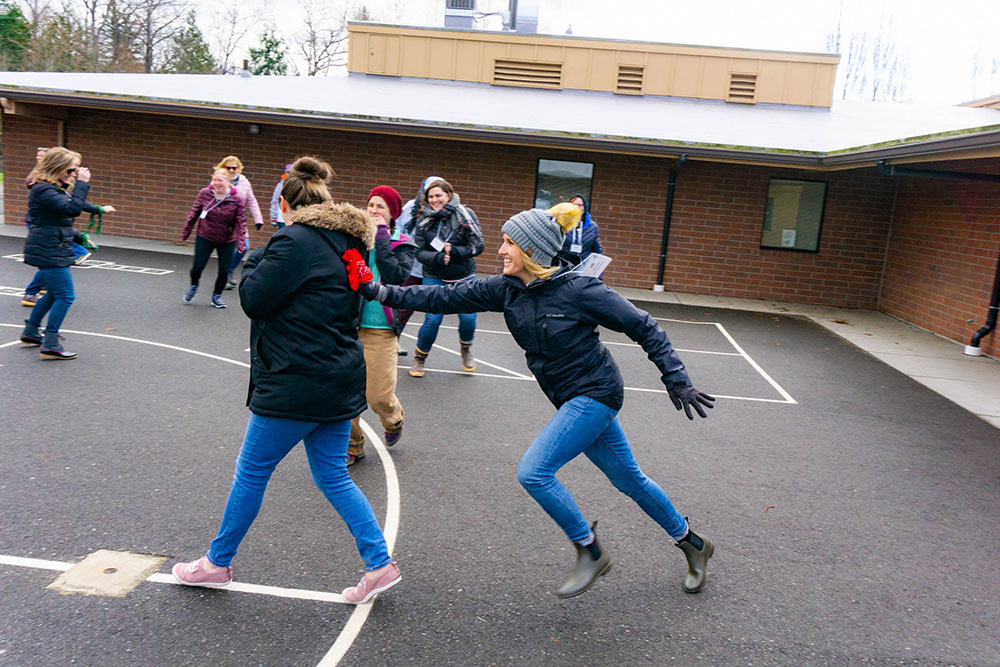
Teachers got inventive with building a watershed, and asked thoughtful questions around the oceanic food web. Many teachers reflected that they, “loved the way that each workshop incorporated models that changed with different environmental scenarios. [The models] relate to the environment in which we live, things students can actually observe and witness the impacts of. It’s been very helpful for us teachers to see how a model can be implemented and presented.”
COVID-19 threw the planned in person trainings for a bit of a loop. However, teachers indicated that they were eager to continue even as the trainings transitioned to a mobile platform. Gretchen Baker, a 3rd grade teacher at Harmony Elementary said, “(This training) has opened up a wormhole, whether frightening or not, and makes me think how we can move in a positive direction.” Our world is in constant flux, moving with the needs of society and people, and it is important to remain positive in our global outlook. The climate, nature and world communities are perpetually connected in every action and reaction. As educators and learners in all walks of life, together we can generate a healthier, more sustainable community that is our planet and all of its residents.
